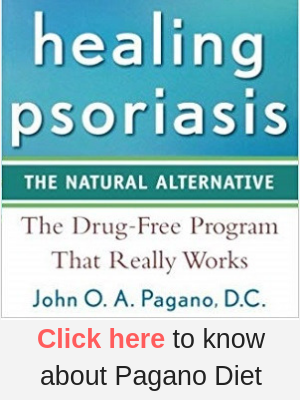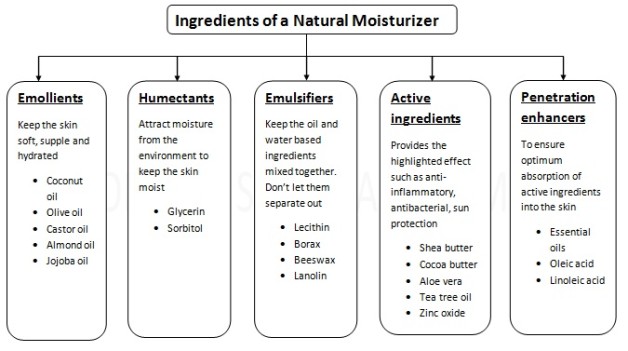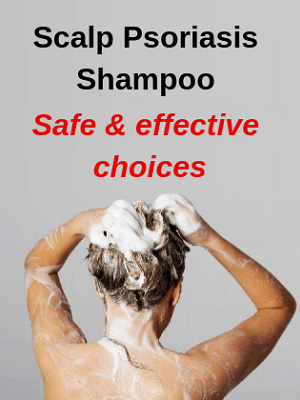Psoriasis is a complex skin disorder characterized by a high degree of skin dryness and inflammation. Almost every person dealing with this problem is curious about how to select a moisturizer for psoriasis. Psoriasis is an auto-immune disorder- the faulty immune system triggered by increased level of body toxins stimulate rapid growth of skin cells to develop thick psoriasis scales on various parts of the body. Genetic problems, inefficient digestive tract, nutritional deficiency, chronic constipation, high degree of stress, over consumption of alcohol and tobacco (smoking), prolonged use of steroids and antibiotics- all these factors can increase the level of body toxins to a dangerously high level.
Such a high level of body toxins coupled with impaired liver would force the body metabolism to throw the toxins out through the skin in the form of psoriasis lesions. Hence, psoriasis is not just a skin problem. It is a gut related problem. The long term healing of psoriasis would be inside-out with the help of positive changes in diet, lifestyle and use of dietary supplements.
Read more: Body detox for Psoriasis
Role of skin moisturizer
Psoriasis lesions are quite visible in nature and can make you quite conscious about your physical appearance in the outer world. Lesions on body parts such as scalp, underarms, under the breasts, palm of the hands, knees and elbows can be quite itchy also. Frequent itching would further flare up the problem. Using a safe and effective skin moisturizer is the answer to all these problems (for scalp, use an effective shampoo and hair oil).
Opt for a Natural Moisturizer
A natural moisturizer containing plant based oils and naturally derived fats and ingredients would be a better option than chemical preservatives and stabilizers. A moisturizer should be selected considering the skin type. Psoriasis is characterized by dry skin, hence, use a moisturizing cream instead of using a light moisturizer or a moisturizing lotion.
Ingredients of a Natural Moisturizer
A typical natural skin moisturizer would contain:
- Emollients– Emollients hydrate your skin and make it soft and supple. Plant based oils such as olive oil, almond oil, jojoba oil, virgin coconut oil and castor oil are best examples of emollients.
- Humectants– Humectants help preserve the natural moisture of your skin. Humectants attract moisture from the water present in the environment to make the outer layer of the skin moist. Glycerin is one of the best humectants along with sorbitol.
- Emulsifiers– In a moisturizer, there are oil based as well as water based ingredients. As we all know, oil and water don’t mix together. Here comes the role of emulsifier. It keeps the ingredients mixed together and don’t let them separate out. Lecithin, borax, beeswax are commonly used natural emulsifiers. Lanolin, a fatty substance found in sheep’s wool is also an excellent emulsifier.
- Active ingredients– Active ingredients are responsible for providing the advertised effects, such as- anti-inflammatory, anti-bacterial, anti-fungal, sun protection, soothing etc. Aloe Vera is a popular anti-inflammatory and soothing ingredient and tea tree oil is an effective anti-bacterial and anti-fungal ingredient. Shea butter, extracted from the nut of the African shea tree is a deep skin moisturizer with soothing properties. Chamomile extract, white willow bark and green tea also come under the category of soothing ingredients. Zinc oxide along with titanium oxide are natural ingredients which protect against sun damage.
- Penetration enhancers– Penetration enhancers ensure optimum absorption of the active ingredients into the skin. Various essential oils (menthol or chamomile), linoleic acid, oleic acid are natural penetration enhancers.
Ingredients to avoid
Various synthetic ingredients are added in the moisturizers to increase their shelf life and enhance the effect. These ingredients, when used in the long term, can impose potential side effects. Enlist below is a list of commonly used synthetic ingredients.
- Mineral oils
- Alcohol– Drying in nature and skin irritant
- Artificial fragrances or colors– Usually contains phthalates which can cause hormone imbalance, reproductive disorders and other complications.
- Parabens– Reproductive disorders and breast cancer. Look for any ingredient having paraben at the end of the name.
- Formaldehyde– Carcinogenic in nature (cancer causing).
- Propylene glycol– Allergies and skin irritations
From where to buy
I hope this article has helped you up to some extent in clearing your doubts about how to select a moisturizer for psoriasis. You can buy a natural skin moisturizer from a store near to you. Otherwise, you can buy it online also.
I am giving links to a couple of natural moisturizers that can help with skin dryness, itching, cracked skin and redness.
| USA readers | India readers | UK readers | |
|---|---|---|---|
| Oatmeal + Aloe vera + Shea butter + Calendula | Click here | Click here | Click here |
| Aloe vera + Vitamin E + Shea butter + Green tea | Click here | Click here | Click here |
| Aloe vera + Cocoa butter + Manuka honey | Click here | Click here | Click here |
| Aloe vera + Manuka honey + Hemp seed oil + Vitamin E | Click here | Click here | Click here |
Conclusion
A skin moisturizer alone can’t heal psoriasis. But, it can significantly reduce the skin dryness and irritation. Also, it would reduce the visible symptoms of psoriasis to help you face the outer world with more confidence. Along with positive changes in diet and lifestyle, regular use of a skin moisturizer would speed up the healing process. Always opt for a fragrance free, natural skin moisturizer of a reputed brand.




dear Ashish, thanks for above information, would be good if you advise also for Indians, livings in Delhi where to get such creams containing all the vital ingredients mentioned.